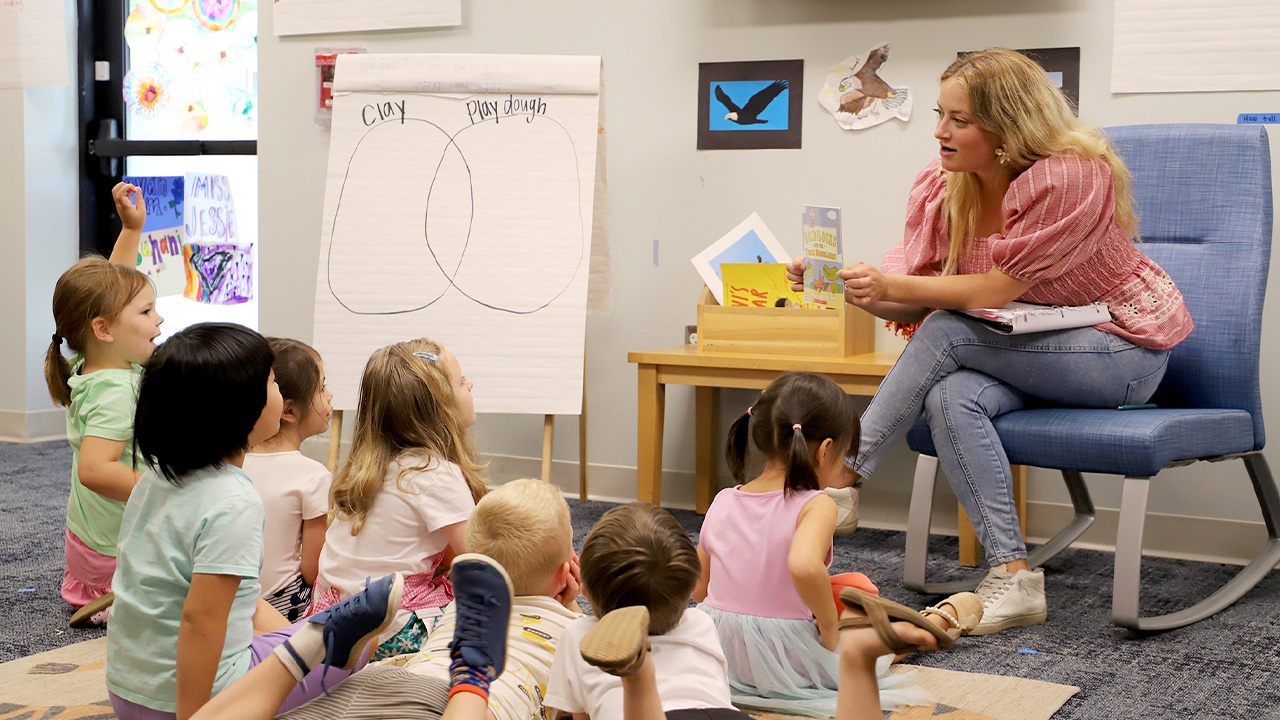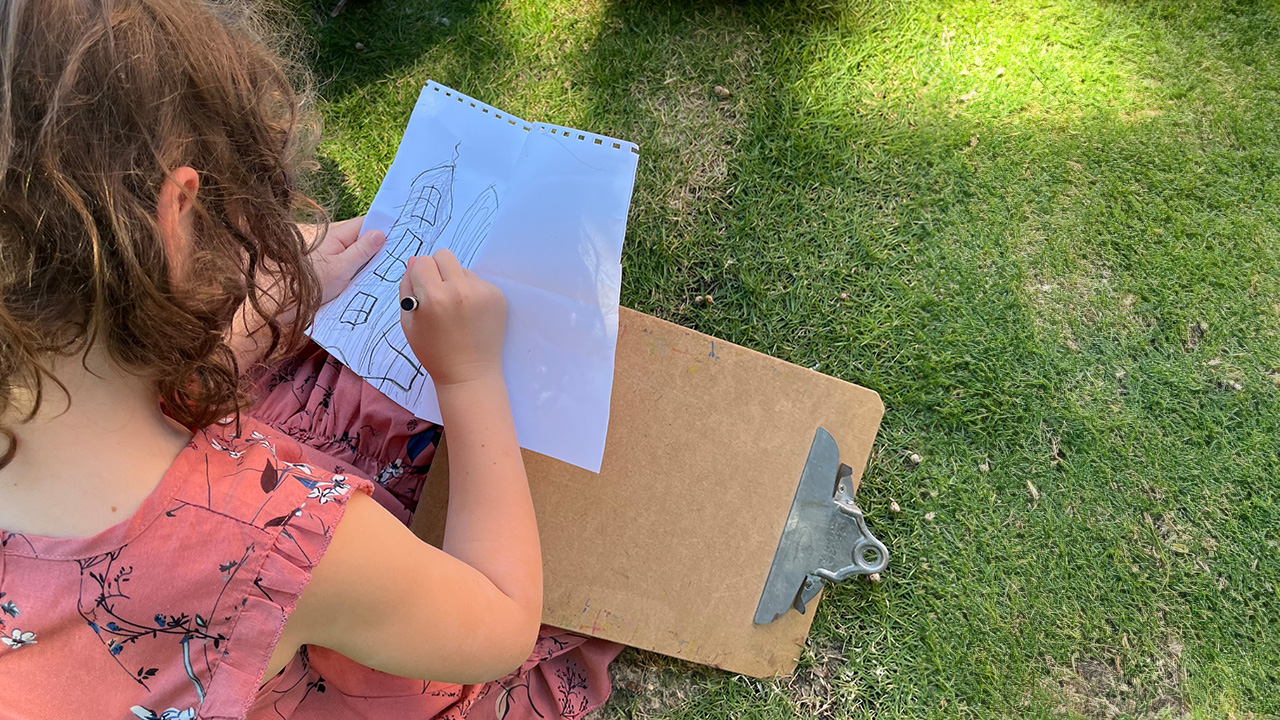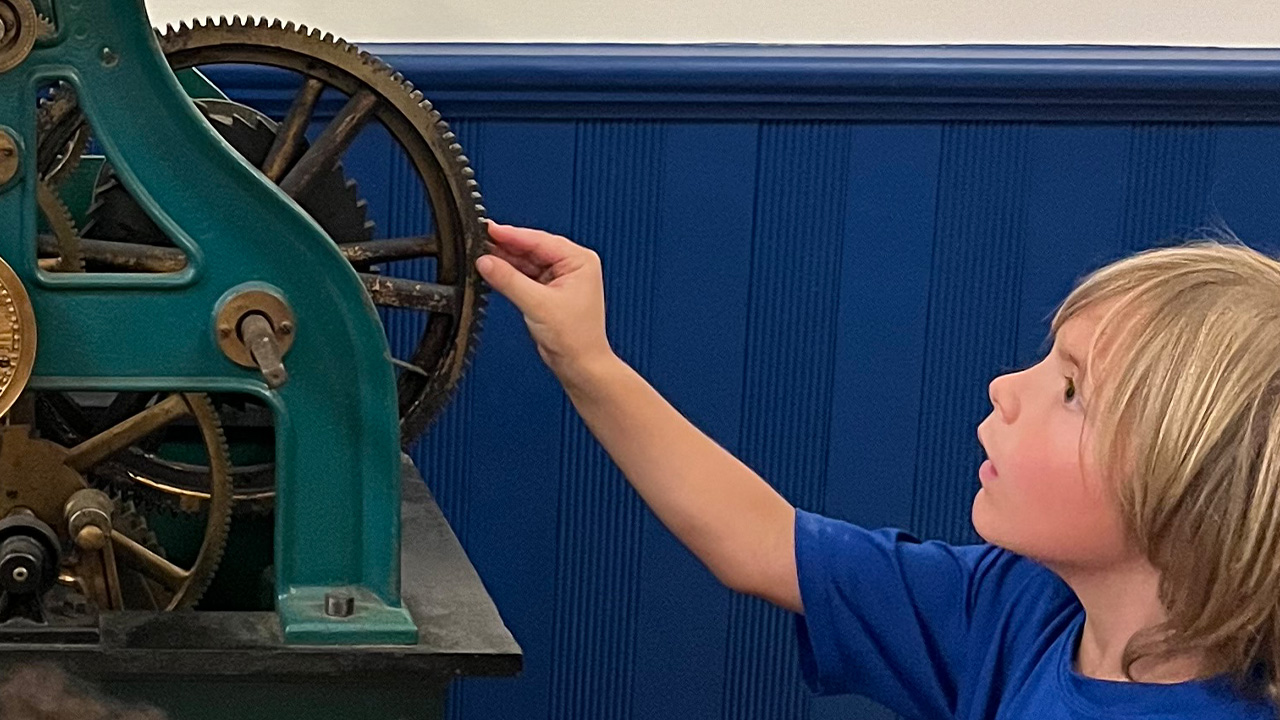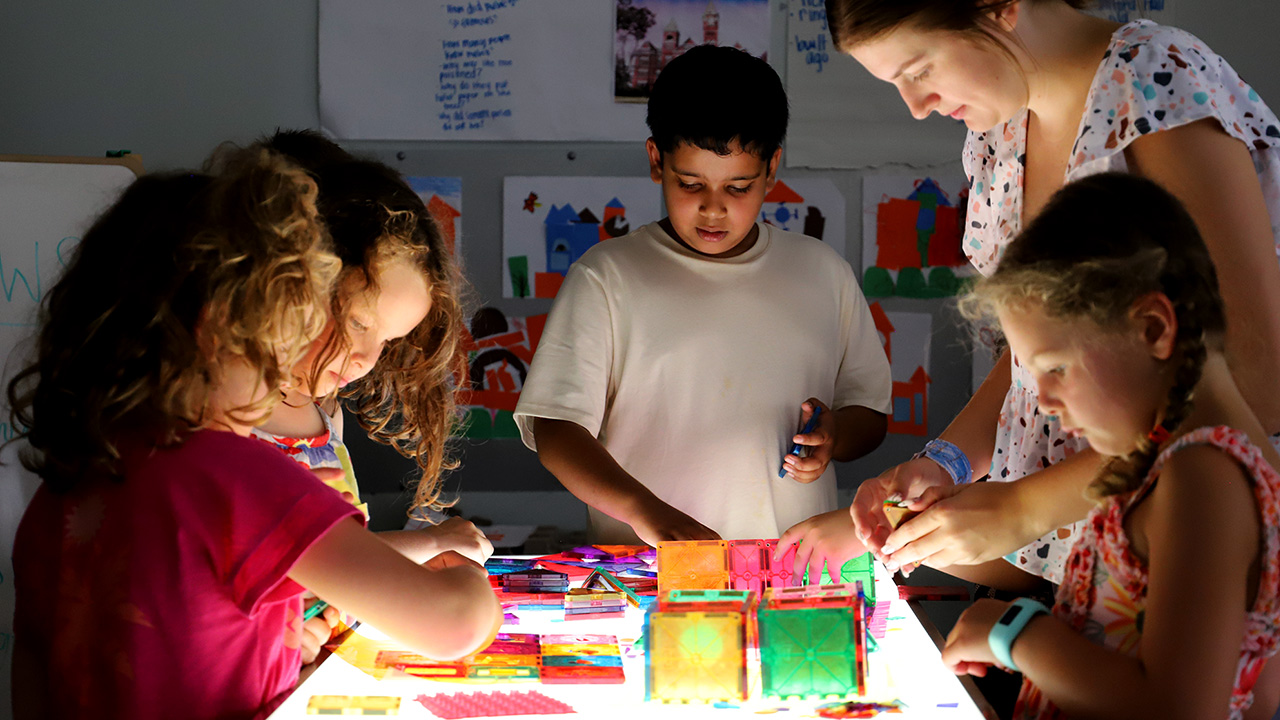content body
It's summertime, and school is out. The hallways are empty and the classrooms quiet, but some students in Auburn University’s College of Education still need clinical teaching hours.
So, how are they gaining valuable classroom experience when school’s not in session?
When Auburn students can’t go into elementary schools, the College of Education brings elementary school to them. The college’s Early Childhood Summer Enrichment Program offers students in Early Childhood Education valuable teaching experiences in the classroom as they advance toward becoming highly qualified educators.
Community members enroll their children aged 5 to 8 four days a week at the College of Human Sciences’ Early Learning Center, which is outfitted with age-appropriate play materials, observation rooms for Auburn students and faculty and a playground that is just the right size. Working with small classes and a low student-teacher ratio, the student teachers are supervised by experienced Auburn faculty. As part of a packed summer schedule, Auburn student teachers work at the enrichment program in the mornings, attend a full schedule of classes in the afternoons and prepare lesson plans for the following day at night.
“You have to do a certain number of semesters of practicum hours,” said junior Skyler Heithcock. “At first, I was kind of nervous about being here in the summer doing school, but it’s been really fun.”
Small class sizes mean plenty of hands-on teaching time for the Auburn students, who rotate through different roles preparing appropriate lessons and experiences and gathering assessment information based on children’s individual needs.
Junior Lucy Ferguson is teaching at summer enrichment under the watchful eye of program director Sean Durham and clinical lecturer Lindsay Griffies. Having studied under both faculty members, she appreciates Durham’s expertise in education theory and Griffies’ classroom experience, and she works every day to apply the lessons she’s learned from both in her practicum experience.
“It’s cool seeing their different areas of focus,” Ferguson said. “Dr. Durham really likes play, but Mrs. Griffies, having been a preschool teacher, has her own experience of needing to follow the standards. They balance each other really well.”
While the Summer Enrichment Program has been around for over 25 years, this is only the second time it’s been held at Human Sciences’ Early Learning Center (ELC). Durham is grateful for the collaboration with the college’s Human Development & Family Science department.
“For 25 years, we had the Summer Enrichment Program in Haley Center, so it’s very nice to have facilities that are appropriate for children and easily accessible to parents,” he said. “Our students do clinical observations here throughout the year, and during the summer we have one of the ELC teachers working with us, so that’s a pretty strong level of collaboration.”
Durham is excited that summer is a time when students can really focus on what children want to learn. While fall and spring semesters are busier times in terms of classroom management, the slow pace of summer and the small class sizes allow students to tailor their lesson plans to the children’s interests.
“We’re trying to follow the leads the children are providing for their education,” Durham said. “Sometimes that gets suppressed in conventional education settings. We want our students to leave the program here with a very clear sense that the child is first in their own education, and children really are driving their own learning.”
Durham feels this summer program provides more than just a chance for students to earn clinical hours; it’s also an opportunity to apply what they’ve learned in a way other education majors may not get to.
“Summer enrichment has always been a great experience to work with theoretically based, high-quality early childhood practice that sometimes is hard to observe in the real world,” he said. “To have them be able to learn how to teach using play and to learn how to assess what children really know through naturalistic observation is really a gift for this cohort that not all of our cohorts get to experience.”









